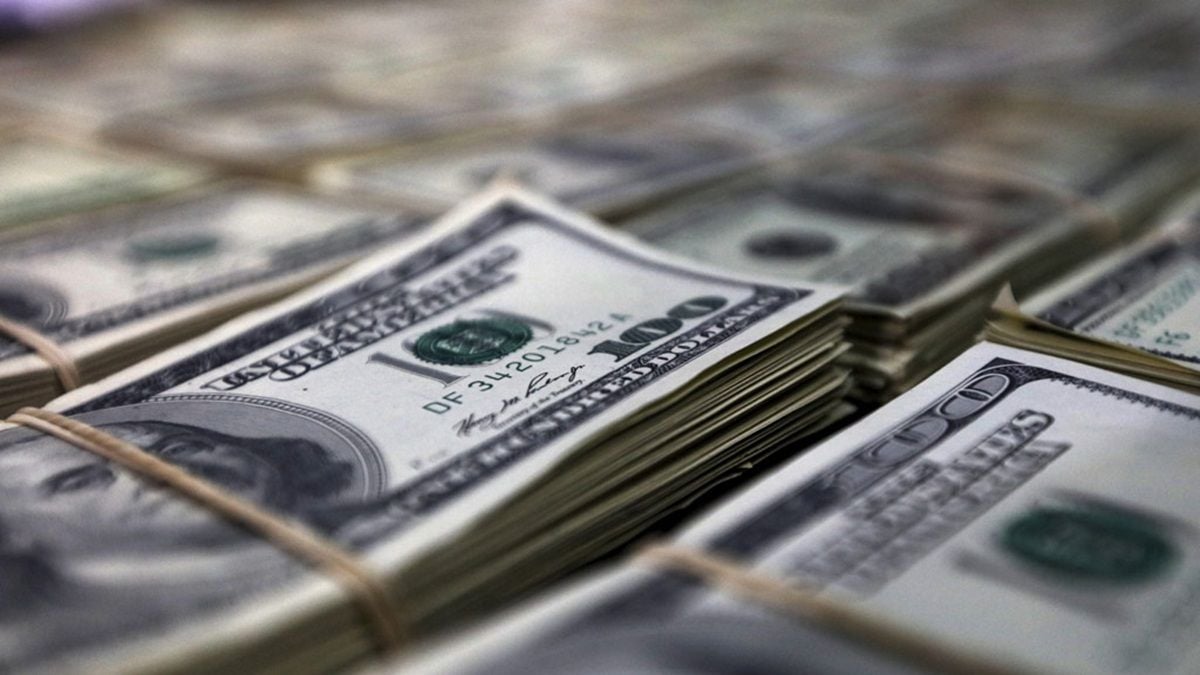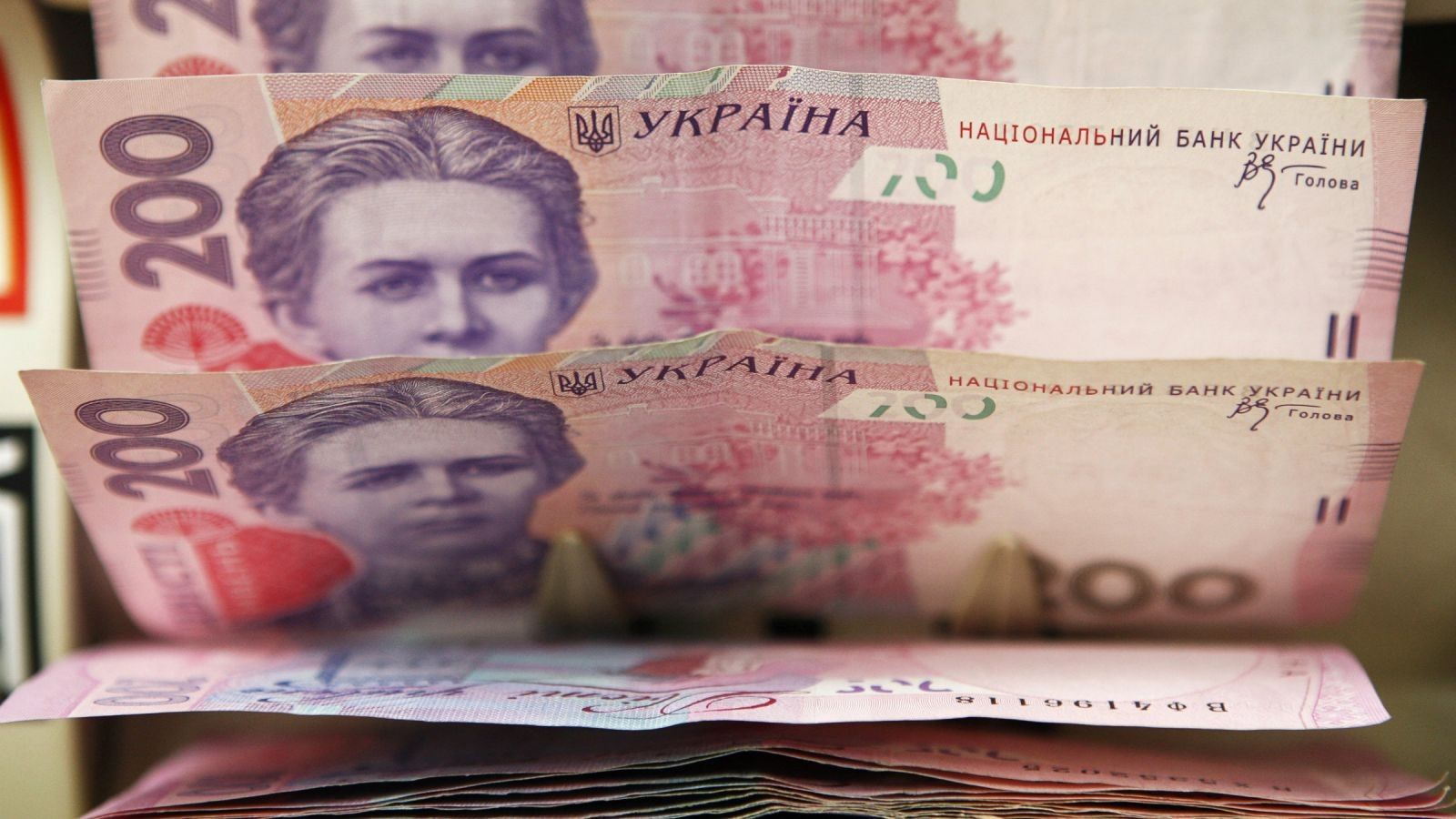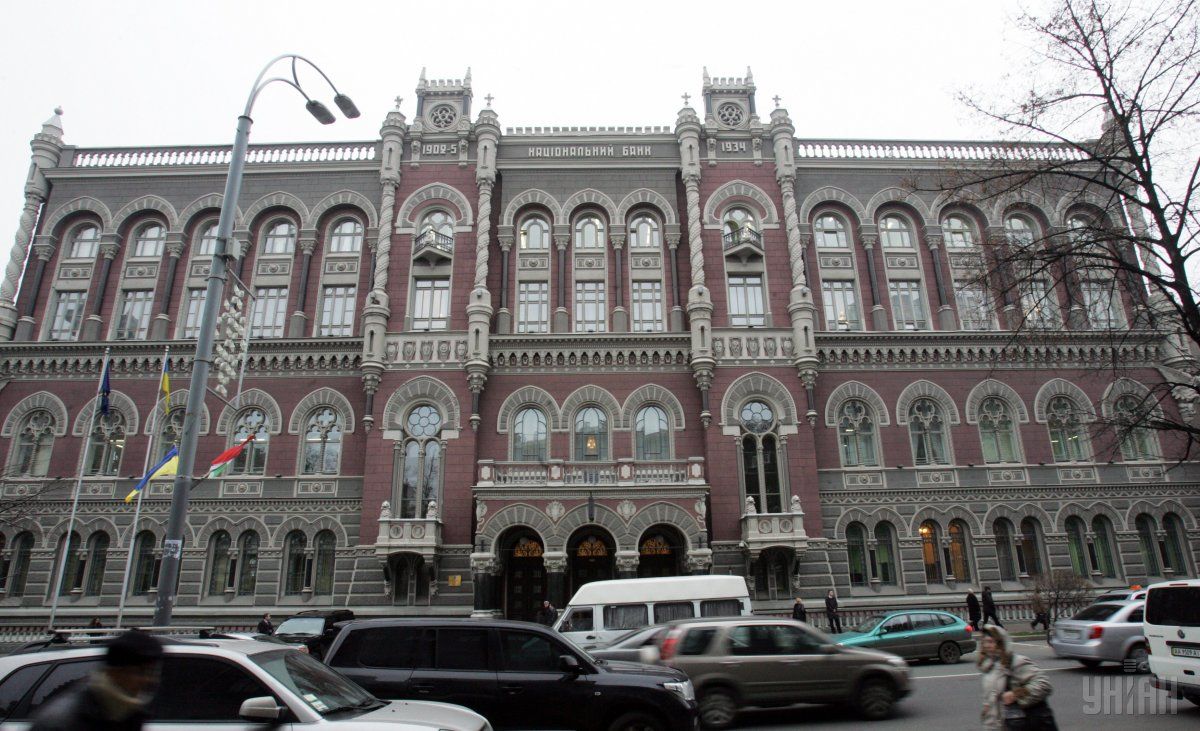
Currency unleashed
Having taken advantage of the currency market stabilization and the beginning of economic recovery, the National Bank eased a number of foreign currency restrictions for businesses and citizens. Experts warn of upcoming exchange rate fluctuations, although they see no reason for panic.
After some unrest in January and February, Ukraine’s foreign exchange market has been relatively calm for the fourth month in a row. Hryvnia quotations to the dollar on the interbank foreign exchange market remain within UAH 24-25 / USD, with almost the same level in the cash market. The black market is losing ground as the Ukrainians in January-May have put in banks $ 1.1 billion more currency than they bought.
According to the National Bank, the increase in revenue of the exporters due to an improved situation on foreign markets resulted in the increase of the average daily volume of currency supply on the interbank market, which grew almost one and a half times – from $170 million in January to $231 million in May. This has allowed the regulator to continue buying back the excess currency and replenish reserves by more than $1 billion.
The NBU took its first serious steps to loosen foreign exchange regulations National Bank in late May, when the period of consideration of applications for the purchase of currency on behalf of clients by the banks was reduced from two days to just one day. Considering that it did not break the balance achieved, and neither did a number of target steps of forex easing, while hryvnia continued to strengthen, the regulator June 8 risked to take bolder steps toward liberalization.
In particular, from June 9, the rate of mandatory sale of revenue by exporters was reduced from 75% to 65%, while the limit of cash foreign currency purchase by individuals doubled – to the equivalent of UAH 12,000 per day. Maximum amount of cash foreign currency withdrawal increased twice - up to the equivalent of UAH 100,000 per customer a day, while the limit on withdrawing cash hryvnia was canceled as such.
In addition, without waiting for the signing of an updated memorandum with the International Monetary Fund, as it was planned earlier, the National Bank from June 13 authorized payments of dividends to foreign investors for 2014-2015, according to a certain schedule.
Besides, from June 15, banks will be able to change the rate of foreign currency purchase / sale during one trading day and to use varying rates within the system of a single bank.
The very next day after the adoption of the currency liberalization regulations, on June 9, the hryvnia was no longer strengthened on the interbank market and it even fell a few kopiykas down. This trend also continued on June 10, when at the close of trading, the national currency quotes reached UAH 24.98 / 25.02 to the dollar, having lost positions, earlier reclaimed from the dollar in the last week.
UNIAN interviewed the experts, asking what will happen with the hryvnia and whether the NBU went too far with the forex easing, and what further steps should be expected on the market in this context.
Volatility growth

According to experts, the steps made by the NBU in the foreign exchange market liberalization are likely to increase the risks of short-term fluctuations, but they do not threaten the market with any significant shocks, as it was in February last year, when the hryvnia fell to a historic low of UAH 30 to the dollar.
Chief economist at Alfa-Bank (Ukraine) Oleksiy Blinov says that currently, a significant currency surplus was formed on the interbank foreign exchange market, due to the recent rise in prices for the products of mining and smelting industry. "Therefore, the decision on a substantial weakening of the currency restrictions is unlikely to have a major impact on the hryvnia exchange rate, which has until now been held back by the strengthening with the NBU interventions ", - the expert believes.
With regard to the fears of a negative impact on the currency market by the authorization for the repatriation of the dividends, Blinov believes that the mechanism provided by the regulator eliminates the possibility of large one-off payments of accumulated dividends, creating a gradual withdrawal schedule. According to preliminary estimates of the NBU, the payment of dividends will be extended over 10 months.
Chief economist at Dragon Capital Olena Belan also believes that the recent decision of the NBU on currency liberalization will have a positive impact on the expectations of businesses and population, contribute to the inflow of deposits into the banking system and will be able to improve the attitude of foreign investors to Ukraine. At the same time, she noted that now the market participants get a little more room in forex transactions, so the rate volatility will grow.
"In the coming months the excess of currency in the interbank market will remain, thanks to high steel prices, which are reflected in the foreign currency proceeds with a slight lag. According to our expectations, by the end of the summer, the excess currency will start to dry out and turn into a deficit in autumn due to the combined effect of declining steel prices and seasonal demand for foreign currency," says Belan.
According to the expert, the result may be a slight weakening of the national currency. By the end of 2016, hryvnia will return from the current UAH 25 / USD to the mark of UAH 27 to the dollar, the expert believes. It is for this reason, as explained by Belan, the National Bank adheres to the tactics of a gradual easing of forex control and its further steps in this direction will be cautious.
The NBU was also praised by the Ukrainian Credit-Banking Union association, which in recent years has often criticized actions of the regulator. According to the UCBU, the steps taken will help de-shadow the forex market, return confidence in the banking system and restore market exchange rate formation mechanism.
The association believes that the increase in limits on the issuance of cash foreign currency and purchase of foreign currency by individuals will gradually return to the banking system the earlier lost savings of the population. A return to the market exchange rate formation mechanism, along with the opportunity to change the rate during the day and use the different rates within a system of a single bank, will help the banks compete with the black market.
The UCBU reminds that the stringent requirements regarding exchange rates were introduced in 2009, and they did not take into account the regional peculiarities of the currency market, creating significant imbalances between currency demand and supply. Banks were thus forced to suspend foreign exchange transactions, which stimulated the activity of the shadow "currency exchange” businesses, to which the NBU requirements did not apply.
The NBU recently presented its first financial stability report, predicting that the foreign exchange market will, in general, remain balanced in the second half of 2016. At the same time, the central bank notes that the risk of significant volatility in the exchange rate remains given the negative factors arise.
Among these factors is the escalation of the military conflict in eastern Ukraine, the problems with the financing by the International Monetary Fund and other official creditors, shocks to foreign trade and abrupt changes in fiscal policy, including an unscheduled review of social standards and wages.
After the publication by the NBU of its decision on currency liberalization, S&P Global Ratings in its outlook opined that Ukraine was likely to continue its cooperation with the IMF and receive the next tranche in July or August, while performing the debt payments and maintaining the exchange rate balance.
If the optimistic forecasts are correct, there may be new steps toward forex liberalization, so there is still some work to be done.
To be continued

According to Oleksiy Blinov, the Ukrainian authorities should further abolish the pre-booking of the hryvnia purchase, soften the requirements for paper registration of cross-border transactions, as well as completely remove the restriction on the receipt of funds from the foreign currency accounts of individuals and cancel a 2% pension fee on currency purchase operations.
It is worth noting that the lifting of the pension fee is beyond the competence of the NBU because it is the Ukrainian legislation that needs to be amended. However, this step can also become a reality – on June 3, a corresponding bill was submitted to the Verkhovna Rada.
Since 2015, only individuals have been paying the pension fee on foreign currency purchases. The authors of the bill say its abolition will contribute to reducing the share of the black market. According to various estimates, its volume accounts up to 50% of foreign exchange transactions, which creates an additional devaluation pressure on the hryvnia.
The UCBU proposes to cancel the ID-ing of foreign currency purchases and increase even more the limits on the issuance of cash currency from foreign currency deposits, which, according to the association, will return to the banking system part of the currency savings withdrawn by the population in 2014-2015, which is nearly $14 billion.
In addition to these provisions, there are a number of other limitations. The NBU still does not allow early repayment of loans to non-residents and return of investment abroad. Banks may only buy foreign currency in the range of 0.1% of their regulatory capital; they remain tied up with rigid regulations of currency position and may not hedge currency risks on the stock exchanges.
Besides, financial institutions, just as they did earlier, will have to file with the NBU the registers of operations prior to buying foreign currency on behalf of clients, which, in fact, means agreeing with the regulator their relationships with customers. The loans secured by foreign currency are still prohibited and the use of credit funds to buy foreign currency is not allowed.
Money transfers of individuals abroad are still limited to the equivalent of UAH 15,000 without any documents and UAH 150,000 with supporting papers. Early repayment of foreign currency deposits, despite the twofold increase in the limit of the issuance of cash currency, will still be made in a hryvnia equivalent at the rate of a currency purchase on the day of the transaction.
Given the expert forecasts and the NBU’s cautious policy, in the near future, we may most likely expect only point changes, while a serious revision of the restrictions will be carried out not earlier than September, when the term of the relevant regulation comes to an end and a traditional seasonal turbulence in the currency market kicks in. If by this time, the market remains calm, there will be a new stage of liberalization, if not – new restrictions are possible. It's that simple.
Olha Hordienko (UNIAN)

